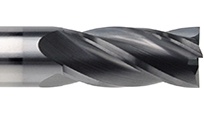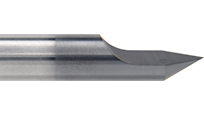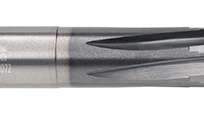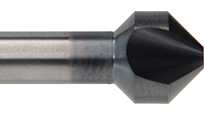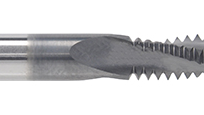What is the hardest metal to mill?
Perfect for Slotting and High-Speed Cutting
End Mill - Drill - Reamer
We are proud to offer the products listed in our catalogue. To help our customers experience first-hand the quality and reliability of our tools, we invite you to review our catalogue and request samples. This initiative reflects our confidence in the superior performance of our products and our commitment to customer satisfaction.
The hardest metals to mill are typically hardened alloys, superalloys, and refractory metals, which are designed to withstand high temperatures, stress, and wear. Here are some of the hardest metals to mill:
**1. Tungsten
- Hardness: Around HRC 70 or more
- Characteristics: Extremely dense and brittle, making it tough to mill. It’s used in aerospace, military, and medical applications.
- Challenges: Requires carbide tools, low cutting speeds, and high coolant flow.
**2. Titanium Alloys
- Hardness: Around HRC 30-50, but can be higher in some alloys
- Characteristics: Tough and heat-resistant, widely used in aerospace, medical implants, and military.
- Challenges: It generates high cutting forces and temperatures, requiring sharp carbide tools and slow feeds.
**3. Hardened Tool Steels
- Hardness: HRC 50-65 (depending on the alloy and heat treatment)
- Characteristics: Strong and wear-resistant, used for cutting tools and molds.
- Challenges: Requires high-performance carbide end mills, slow speeds, and high cooling rates.
**4. Inconel (Nickel-Based Superalloys)
- Hardness: Around HRC 45-60
- Characteristics: Used in high-temperature applications like turbine engines, Inconel has excellent resistance to heat and oxidation.
- Challenges: Extremely tough and work-hardenable, requiring special tools like coated carbide end mills.
**5. Stellite
- Hardness: Around HRC 55-65
- Characteristics: A hard cobalt-chromium alloy used for wear-resistant applications like cutting tools and valve seats.
- Challenges: Requires slow cutting speeds and carbide tools due to its hardness and abrasiveness.
**6. Tantalum
- Hardness: Around HRC 45-50
- Characteristics: Highly corrosion-resistant, used in aerospace and electronics.
- Challenges: High density and low machinability; needs sharp carbide tools and proper cooling.
**7. Chromium Alloys (e.g., Hard Chrome Plating)
- Hardness: Can range from HRC 60-70 when in plated form.
- Characteristics: Very hard and used for wear-resistant coatings.
- Challenges: Difficult to machine due to hardness and abrasiveness. Requires specialized tools and cooling techniques.
Machining These Metals
When milling these hard metals, it’s important to use high-quality carbide end mills, appropriate coatings (e.g., TiAlN), and slow cutting speeds to manage heat buildup and wear. Proper coolant and chip removal are also crucial for achieving a good surface finish and extending tool life.
At Industrial-Tools, we provide the finest CNC tools available to help you streamline your production and achieve flawless results every time.
Browse our extensive selection of CNC tools today and get the best quality tools for your machining needs.
Contact us for more information on our products and how they can benefit your business.
